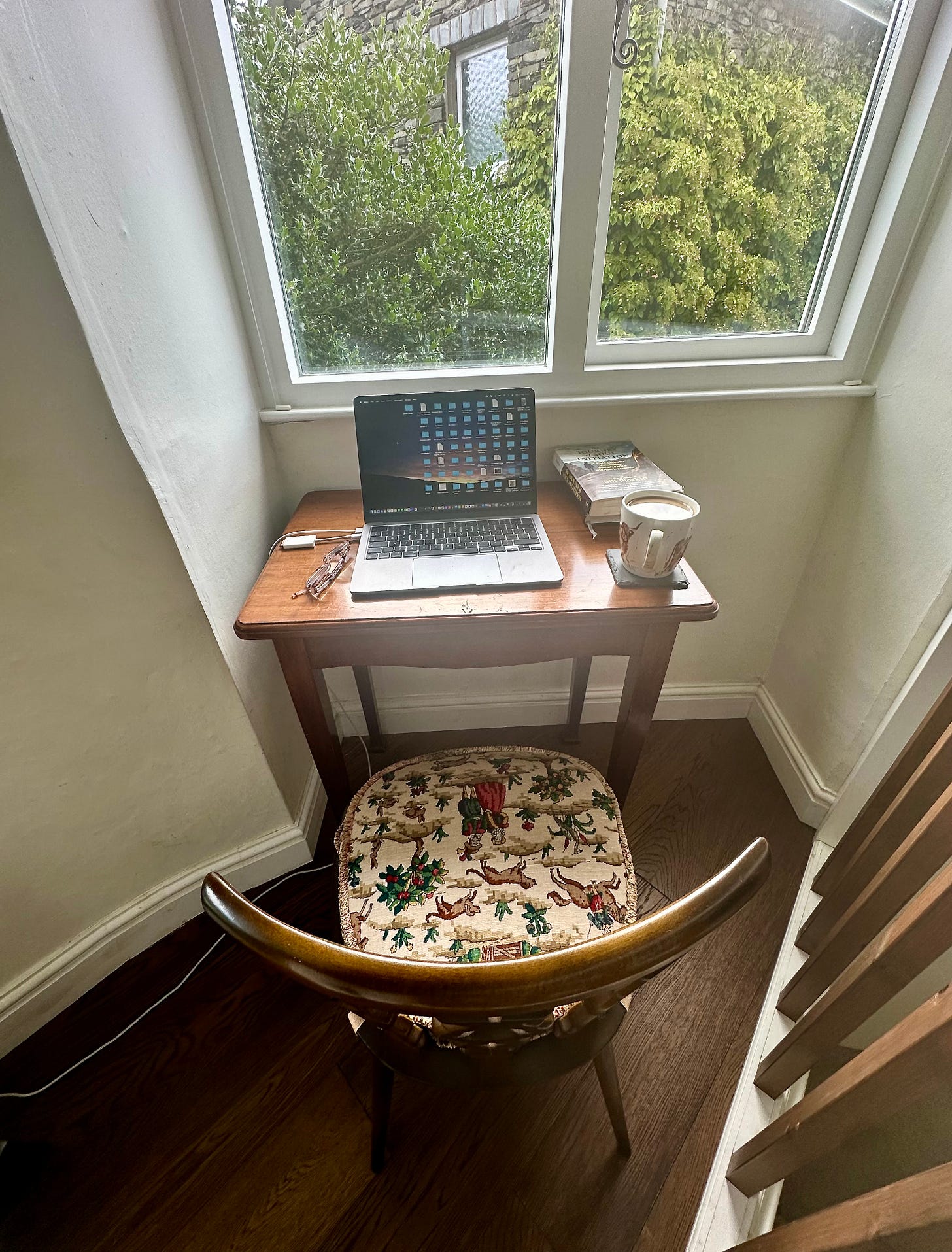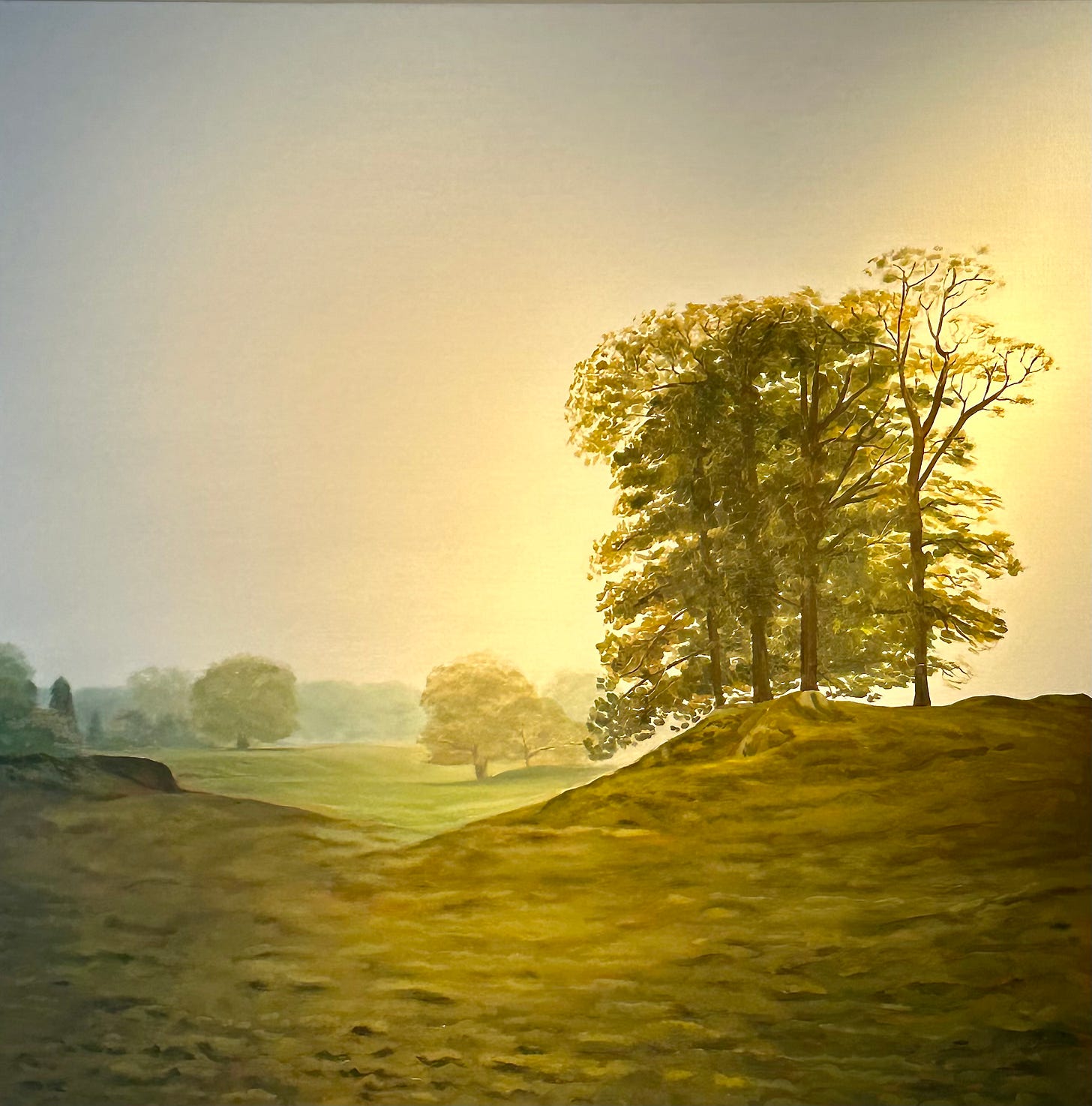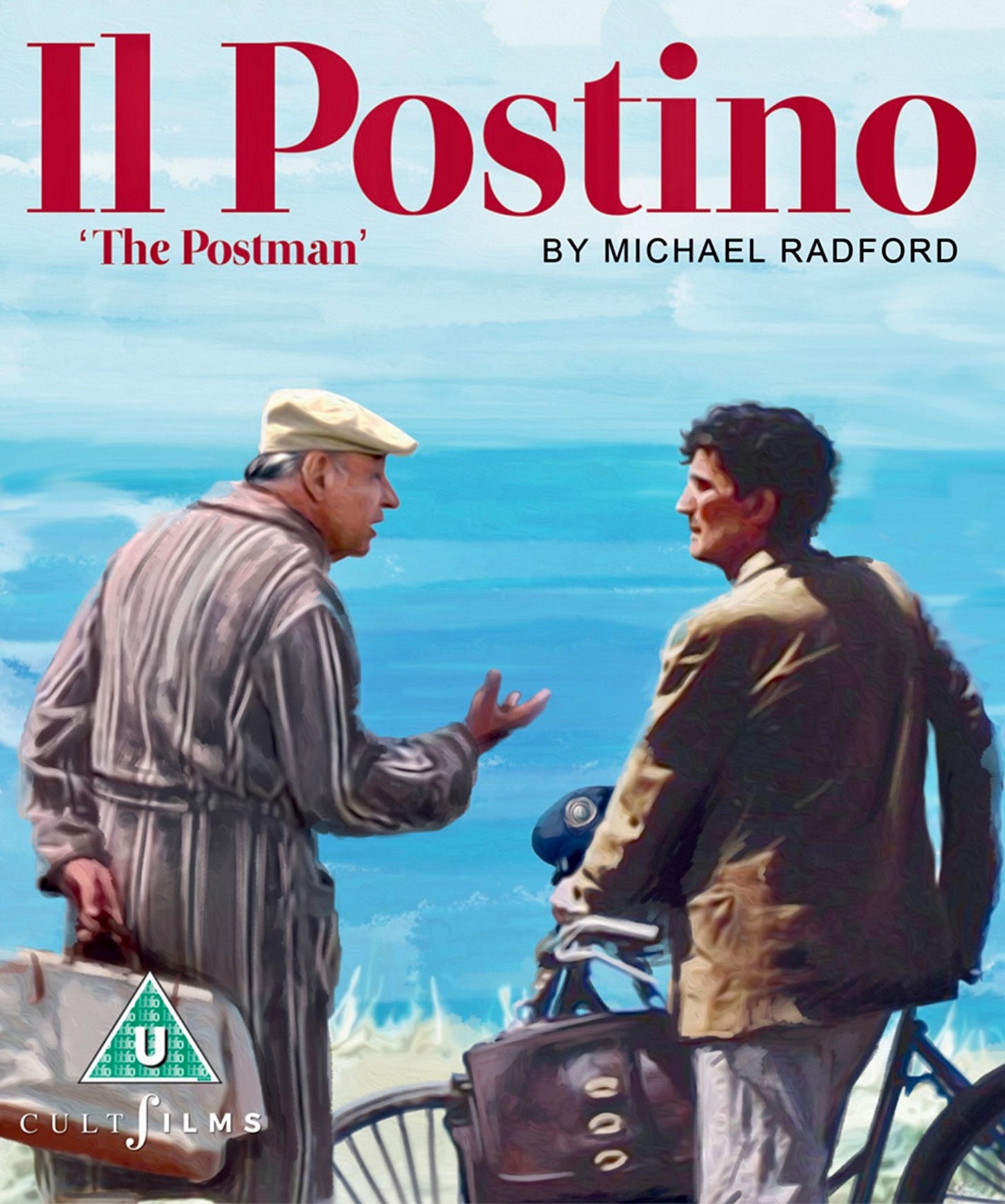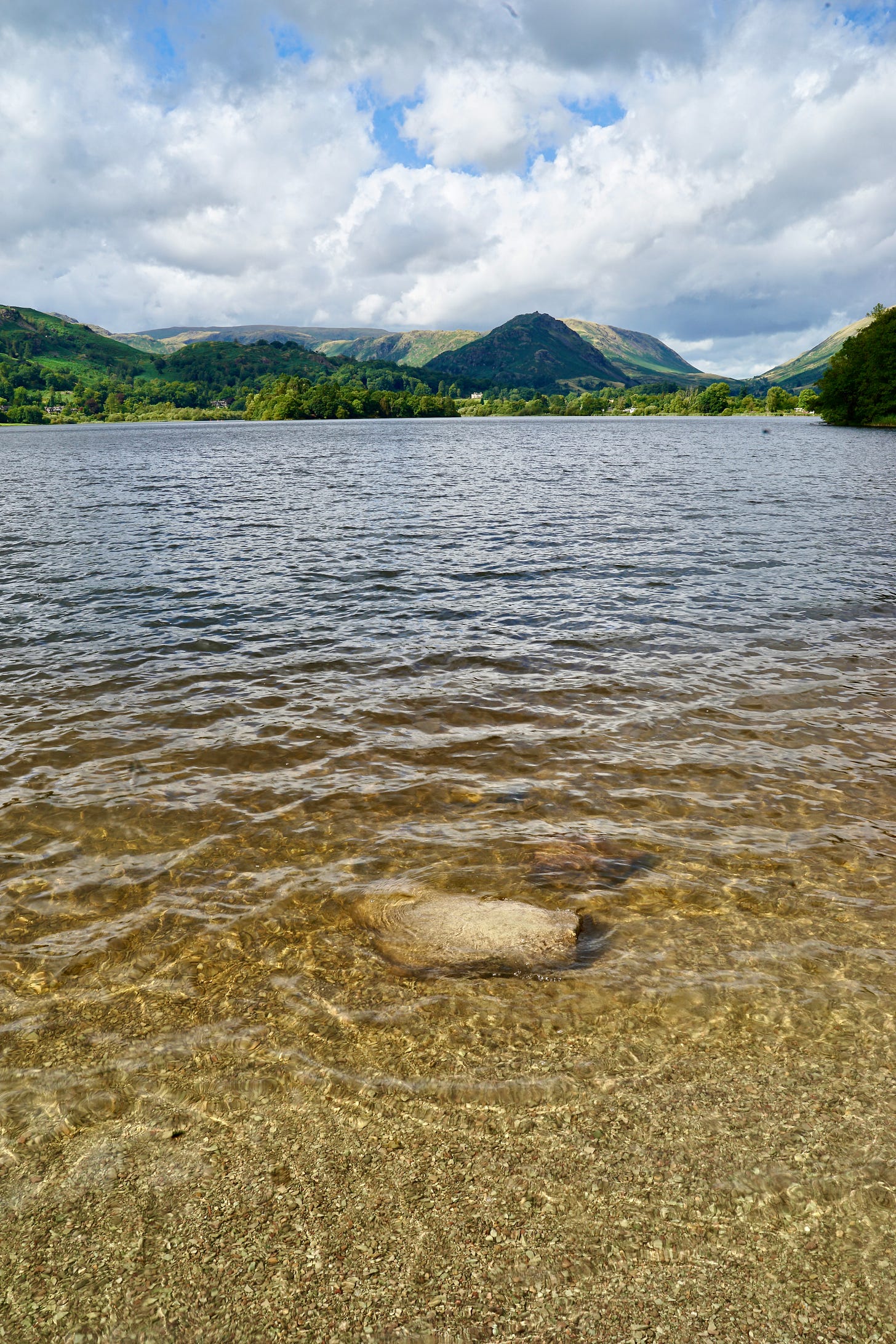Stations around Grasmere ‘our minds are nourished and invisibly repaired’ The Prelude XXII (1805) – William Wordsworth Walk around the lake feeling the blast of the lorries as they rush past. It takes about a mile to escape their barrelling progress. Then you bear right into the trees, to the head of the lake. Stand and look back towards the town, the gentleness of the warm day making the view shimmer, softening the hardness of the stare that has creased your mind. In the distance the lion and the lamb, are lying down in the heat and the dog beside you is panting and licking at the water’s edge, the fluid and solid elements of your life softly speaking in this moment of disclosure. As you continue around the edge of the lake the tree-line favours the shore and the path curves through it showing the way your view is often impeded, asking you to gaze inward through mossy trunks and tender saplings. Gates and a steep path lead you back up to the road and you lose the easy views of the lake as you are displaced by so many travelling in the opposite direction. Hug the mossy walls and try to keep out of the way as the cars full of tourists sweep past you, calm the dog and make sure his leash is short. Own that constriction is part of your walk. Re-enter the town you left a couple of hours ago and try to preserve that settling sensation coming off the water and down from Helm Crag. Go to the poet’s grave in the church yard; the joined lives of brother and sister creating spots of time that echo in these lakes and fells. Stand with your hand in someone’s who has trudged with you and feel the hot breath of a walked dog, relish that you too have breathed with the mere and the crag. It is the gift of this landscape, the long walked romantic intuitions and your faith in water and stone that replenishes and somehow mends.
We are lucky enough to be in the Lakes again, resting in a beautiful and bijou cottage in the village of Hawkshead. The weather forecast was dire but in actual fact so far the rain has stayed away. The place has the most delightful writing nook and that is where I am sitting now on a Wednesday morning thinking about yesterday's walk.
Wilma and I both love Grasmere, the home of William and Dorothy Wordsworth and though we are both a bit knackered we walked around the lake. Something we have done on nearly every visit to the Lakes. Always beginning in the village, sometimes visiting the fabulous museum dedicated to the Romantic poet, his family and his poetic collaborators. It is there we read that he walked around 175,000 miles in his lifetime! There is a peripatetic truth to this fact that, as the latin phrase has it solvitur ambulando (it is solved by walking). Even though we were tired from our efforts over the last few weeks and Wilma’s broken arm, we found great solace in our walking.
When we walk we see. If we are lucky enough to walk in the green world then we see beauty. When I come to the Lakes to help out with David Whyte’s walking tour, he often says, on the first evening, as we take a stroll above Coniston Water that wherever your eyes falls it is on something beautiful. There is very little that is ugly here. When we arrived in Grasmere yesterday we went to the Heaton-Cooper gallery, something again, we usually do. It houses the work of three generations of Lakeland artists - the Heaton-Coopers. They have captured the beauty that one’s eye falls on in each generation, with each generation’s sensibility and style. I have two of their prints in my writing room at home.
The gallery is, at present, hosting an exhibition of the work of Adam Fenton titled Amidst the Sea of Fog. The main part of the work are huge canvases conveying a misty landscape in a place called Cartmel in the lakes. They are a stunning visual testament to the reality of solvitur ambulando that Wordsworth and the romantics speak of in words.
“There are in our existence spots of time
Which with distinct preeminence retain
A fructifying virtue, whence, depressed
By trivial occupations and the round
Of ordinary intercourse, our minds -
Especially the imaginative power -
Are nourished and invisibly repaired.
- The Two-Part Prelude: First Part”
We had, once more, a spot of time around the lake yesterday. My poem is a homage to these spots of time that are so replenishing and curative. I will forever be grateful to my mother who first brought me to the Lakes when I was in my very early twenties. We stayed in a small holding that was owned by her old friend Mary with whom she was a WREN (the women’s Royal Navy) and her husband Dennis, also a retired Naval Officer. They lived overlooking Coniston on the fells and had a Border Collie named Sam. I was training for the priesthood at the time and found the weeks we spent there incredibly healing. I had no idea that it was these trips that were introducing me to my soul’s sources of deep solace.
I would make her take me to mass every day at the little Catholic Church in Coniston as my piety knew no bounds. In fact what seeped into my soul on those trips was not the layers of hide bound ritual that obscure the meaning of the eucharist but the fructifying virtue of the fells. the message I carried home - though I didn’t own to for many years was this - everything is a sacrament. I would walk with Sam for miles and drink in the beauty, my soul was waking up. Three curatives were revealing themselves to me - walking, the lakes, and the company of dogs.
In the film Il Postino there is a wonderful scene between Mario and Neruda. Mario is the only literate man on a small island of fisherman to which the chilean poet Pablo Neruda has been exiled, he receives hundreds of letters and Mario brings them to him, the postman. The two of them are on the beach and they are conversing about poetry, Neruda has just recited some lines about the sea.
Mario: I felt like a boat tossing around on those words.
Neruda: Like a boat tossing around on my words?
Do you know what you've just done, Mario - you've invented a metaphor.
Mario: No!
Neruda: Yes, you really have.
Mario: But it doesn't count because I didn't mean to.
Neruda: Meaning to isn't important - images arise spontaneously.
Mario: You mean that, for example ... the whole world with the sea, the sky, with the rain, the cloud ... the whole world is a metaphor for something else?
Neruda: Exactly so, Mario. The whole world is a metaphor for something else. And metaphors do just arise spontaneously.
Everything is a sacrament. My theology professor Joe Laishley taught us this. If I buy a bunch of flowers and then give them to Wilma because she is healing and I want to tell her that she has done really well. Then although it is still an ordinary bunch of Sunflowers it carries meaning - it is the gift of a giver. So it is, I feel, with the whole green world, it is gift from a giver, and our sense of its givenness arises spontaneously and we are nourished and invisibly repaired.










This is also lovely. Adrian, these are wonderful letters!